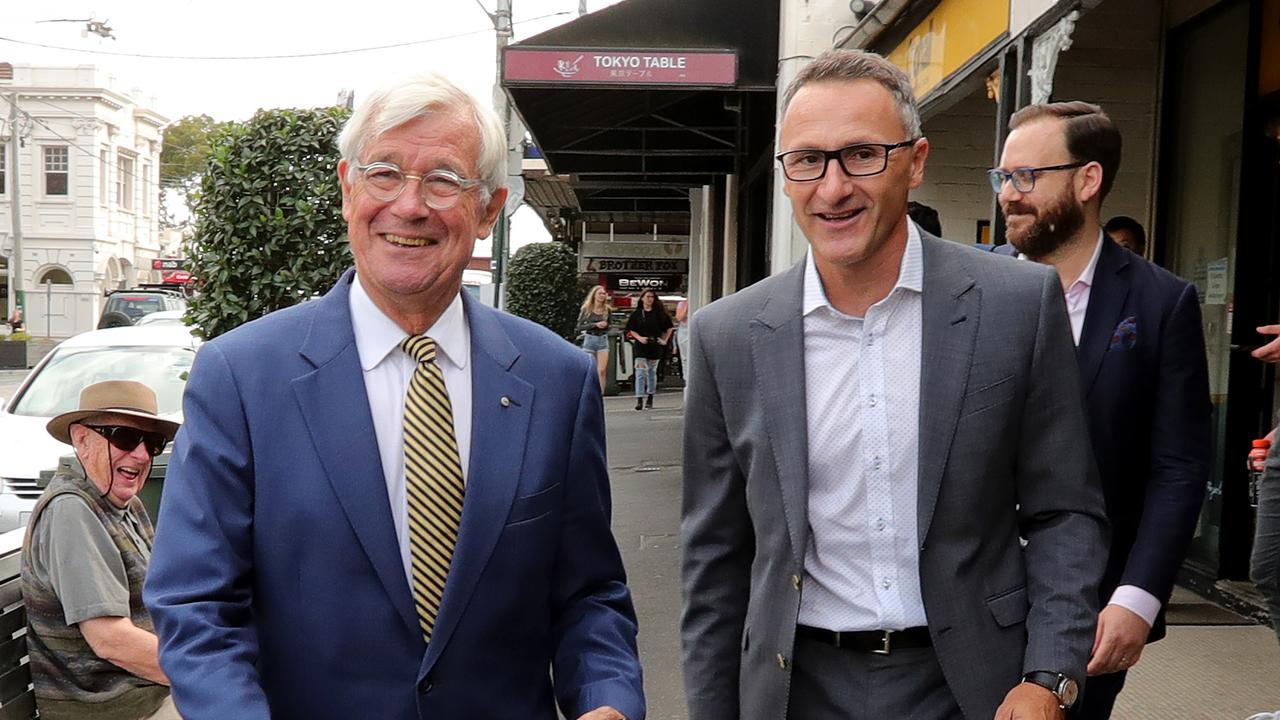The Liberal Party is facing an uphill battle to win next year’s federal election. The swing against the Coalition in the Wentworth by-election does not bode well for it. However, the result is less important than reviewing the circumstances that led to voter discontent.
The divisive legacy left by former PM Malcolm Turnbull demonstrates why shared party values, loyalty and public duty remain vital to political stability in the modern age. The quality of the Liberal campaign for Wentworth was also disappointing, yet predictable. The party has not run a highly impressive political campaign since 2013. The Coalition must do more before the next election to develop a coherent policy agenda to protect the long-term legacy of the party.
Wentworth voters delivered a blow to government hopes of easily rebuilding trust with the public after years of leadership instability. The Coalition did not expect such a big swing against it, but Labor also bled political capital from its poorly run campaign. Many voters snubbed the major parties and turned to independent candidate Kerryn Phelps in droves.
The swing against the government was expected, given voter anger about the circumstances that led to Turnbull’s resignation from parliament. While the ABC was quick to blame the by-election loss on the Liberal leadership change, the history is more complex.
After ousting first-term sitting prime minister Tony Abbott in 2015, the Turnbull team lost 14 seats at the 2016 federal election, leaving the government with a single-seat majority. The threat of minority government was ever present.
After the first leadership spill in August, The Wentworth Courier reported that Turnbull intended to remain in parliament even if he lost a subsequent leadership vote. His loyalty was critical to the stability of government and the future of the party. The Coalition could not afford to lose its one-seat majority in a by-election. Despite assurances, Turnbull quit parliament days after losing the leadership. It was viewed as an act of disloyalty and betrayal.
The disgruntled former PM adopted a rather unconstructive approach to the Wentworth by-election. Scott Morrison, the newly minted Prime Minister, wanted a female candidate to run and reportedly favoured Katherine O’Regan. Liberal polling had shown that Wentworth voters wanted a woman in the contest. Turnbull backed Dave Sharma, the former Australian ambassador to Israel. Yet once Sharma had won preselection, Turnbull failed to provide unequivocal support for him. The PM asked Turnbull to write a letter to his former constituents to endorse Sharma, but he did not. It took John Howard’s late intervention to stave off electoral oblivion for the Coalition in Wentworth.
On the campaign trail, Sharma looked beaten down. The longer it ran, the sadder the spectacle became. Politics is a vicious game and Sharma didn’t seem to have the fight for it. Against Phelps, he looked anxious and under-confident. It was painful to watch, but you can’t win an electoral contest on a pity vote.
In what may have been a concession speech, Sharma all but closed the door on any later tilt for Wentworth. That may change.
Sharma didn’t make an effective transition from international diplomacy to domestic politics during the campaign. He erred by emphasising foreign policy, especially in the call to move the Australian embassy in Israel to Jerusalem. The PM credited Sharma with proposing the idea. It won vocal support in the party room, as it should, but there were significant concerns about the lack of public debate leading up to the announcement, as well as the timing of it. The proposal was made only days before the by-election and was seen as an appeal to Wentworth’s sizeable Jewish constituency. Many were not amused. The seat has a Jewish population of about 12 per cent compared to the national population proportion of 0.4 per cent reported in the 2016 census.
The politicisation of religion or ethnicity is rarely desirable and can have grave consequences for the communities involved. The PM appears unaware of the danger it poses. In parliament last week, he responded to questions about the proposed embassy move by saying: “The Australian Jewish community can trust one party in this chamber: the Liberal and National parties.”
Sharma also provoked an angry response from NSW Jewish Board of Deputies president Lesli Berger after he allegedly used an unauthorised endorsement on campaign flyers. Sharma denied the claim, saying he had sought prior approval. Yet Berger issued a statement asking for the flyer to be withdrawn. He clarified that he had not endorsed any candidate in the Wentworth by-election.
The politicisation of religion or ethnicity is not the sole preserve of the Liberal Party, but the experiment should never be repeated. It is crass, cheap and reduces religious communities to political pawns. It is also an insult to the intelligence of voters.
The Wentworth by-election exposed the PM’s lack of experience and the chaotic legacy left by Turnbull. Sharma was given the impossible task of managing Turnbull’s backseat driving from New York, Turnbull the younger’s verbal incontinence on social media, and Morrison’s disappearing act. It’s no wonder he might be keen to return to his day job.
Former PM Turnbull’s premature resignation from parliament demonstrated disregard for the people of his electorate and stability of government. It vindicated his critics, who have long warned about Turnbull’s one-eyed devotion to himself. The hasty retreat produced panic and led to a desperate campaign where identity politics and spin triumphed over substance.
The result of the Wentworth by-election is important, but the Coalition’s priority must be to rebuild party unity and develop a coherent policy framework, including a national energy plan, before the next federal election.




To join the conversation, please log in. Don't have an account? Register
Join the conversation, you are commenting as Logout